OnePlus 13 vs OnePlus 12: All the differences explained
We may earn a commission if you make a purchase from the links on this page.

Intro
The OnePlus 13 is your best option if you want a flagship phone that is different from all the rest and one that does not break the bank.
But that was also true about the last year's OnePlus 12, so what are the new features in the OnePlus 13?
As always, OnePlus sets itself apart with a stand-out design with a gorgeous new blue color, with flat sides, a number of camera improvements, one of the most impressive chipsets on the market, and a massive battery size that it somehow fit in a phone that weighs less than its rivals.
Oh, and you finally have a sprinkle of AI on the OnePlus 13, but in all fairness, most of those AI features are also available for the OnePlus 12 with just a software update.
Anyway, I have spent the last week using the OnePlus 13, so let's dive deeper to understand all of the...
OnePlus 13 vs OnePlus 12 differences:
| OnePlus 13 | OnePlus 12 |
|---|---|
| 6.8-inch 1440p OLED screen with better eye protection | 6.8-inch 1440p OLED screen |
| New design, flat sides | Curved sides |
| Slightly thinner at 8.5mm | 9.2mm |
| Weighs less at 210 g | Weight of 220 g |
| Faster Snapdragon 8 Elite chip | Snapdragon 8 Gen 3 |
| Bigger, 6,000 mAh battery 1.96 Days of Use | 5,400 mAh battery 1.79 Days of Use |
| Same charging speeds 80W wired 50W wireless | Charging speeds: 80W via wire (100W outside the US) 50W wireless charge |
| New sensors: 50MP main cam 50MP ultra-wide 50MP 3X zoom 32MP front cam | Cameras: 50MP main cam 48MP ultra-wide 64MP 3X zoom 32MP front cam |
| IP69 rating (protected against water jets) | IP65 splash protection |
| Versions: 12/256GB for $900 16/512GB for $1,000 *free upgrade to 16/512GB at launch **trade-in ANY old phone for $100 off | Versions: 12/256GB for $800 16/512GB for $900 |

Table of Contents:
- Design and Display
- Performance and Software
- Camera
- Battery and Charging
- Audio Quality
- Specs
- Which one should you buy?
Also read:
Design and Display Quality
New styling with flat sides
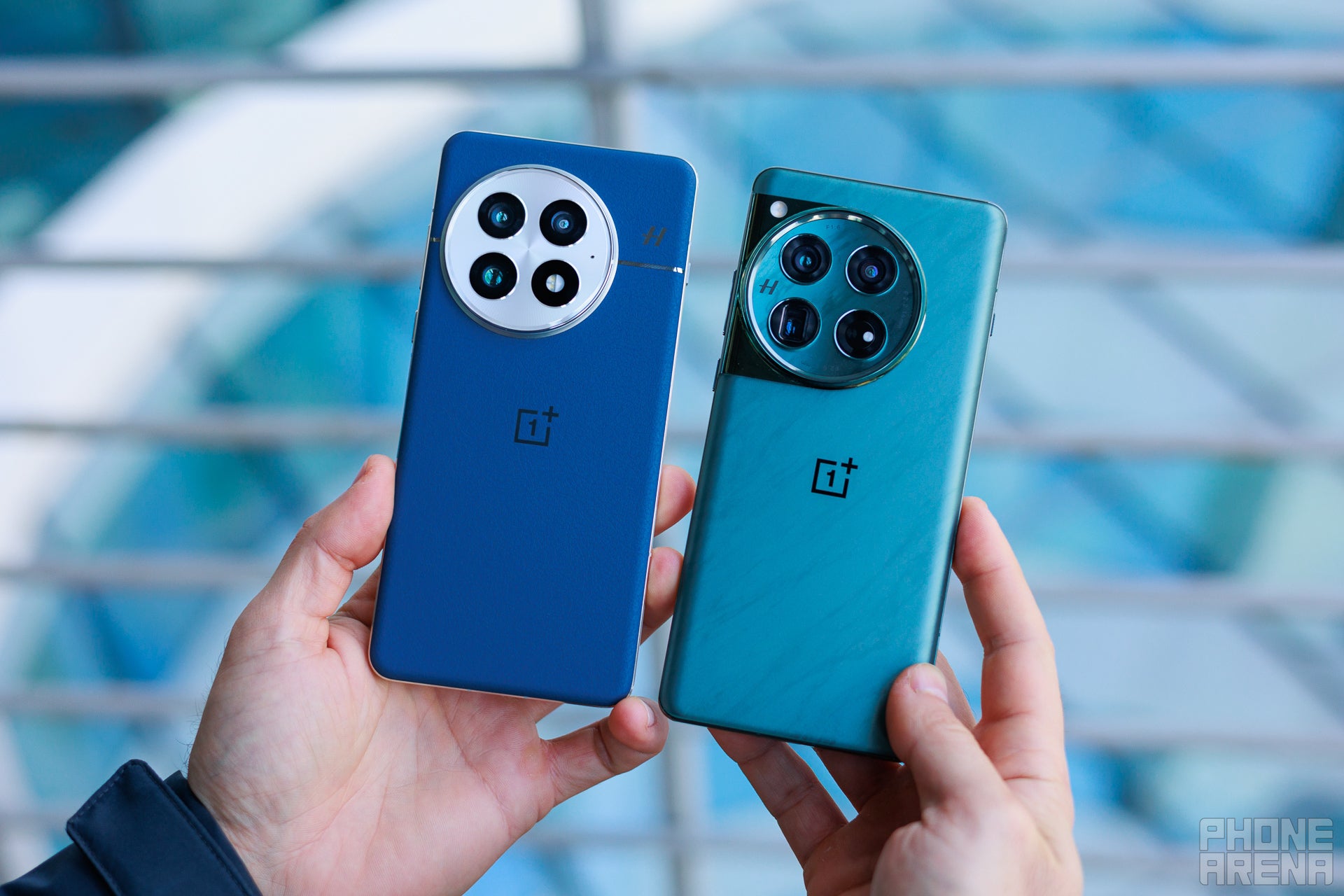
The biggest design change for the OnePlus 13 which is that it gets flat sides. For years, OnePlus phones used curved sides, but it now seems that all Android phones are following the Apple iPhone design lead and switching to this flat design trend, and so is OnePlus.
We like this change, it makes it easier to pick up the phone from a table and helps with grip. We also like having a flat display.
The overall size of the OnePlus 13 remains on the bigger side, it's a 6.8-inch phone after all, just like the OnePlus 12. However, it's a bit slimmer than rivals and weighs a bit less, despite having a bigger battery. That's a big advantage in our books.
Here is a comparison of the OnePlus 13 vs OnePlus 12 size and dimensions:
| Model | Width | Height | Thickness | Weight |
|---|---|---|---|---|
| OnePlus 13 | 76.5 mm | 162.9 mm | 8.5 mm | 210 g 213 g for glass model |
| OnePlus 12 | 75.8 mm | 164.3 mm | 9.2 mm | 220 g |
Those are mostly minimal tweaks, but it's good knowing the exact numbers.
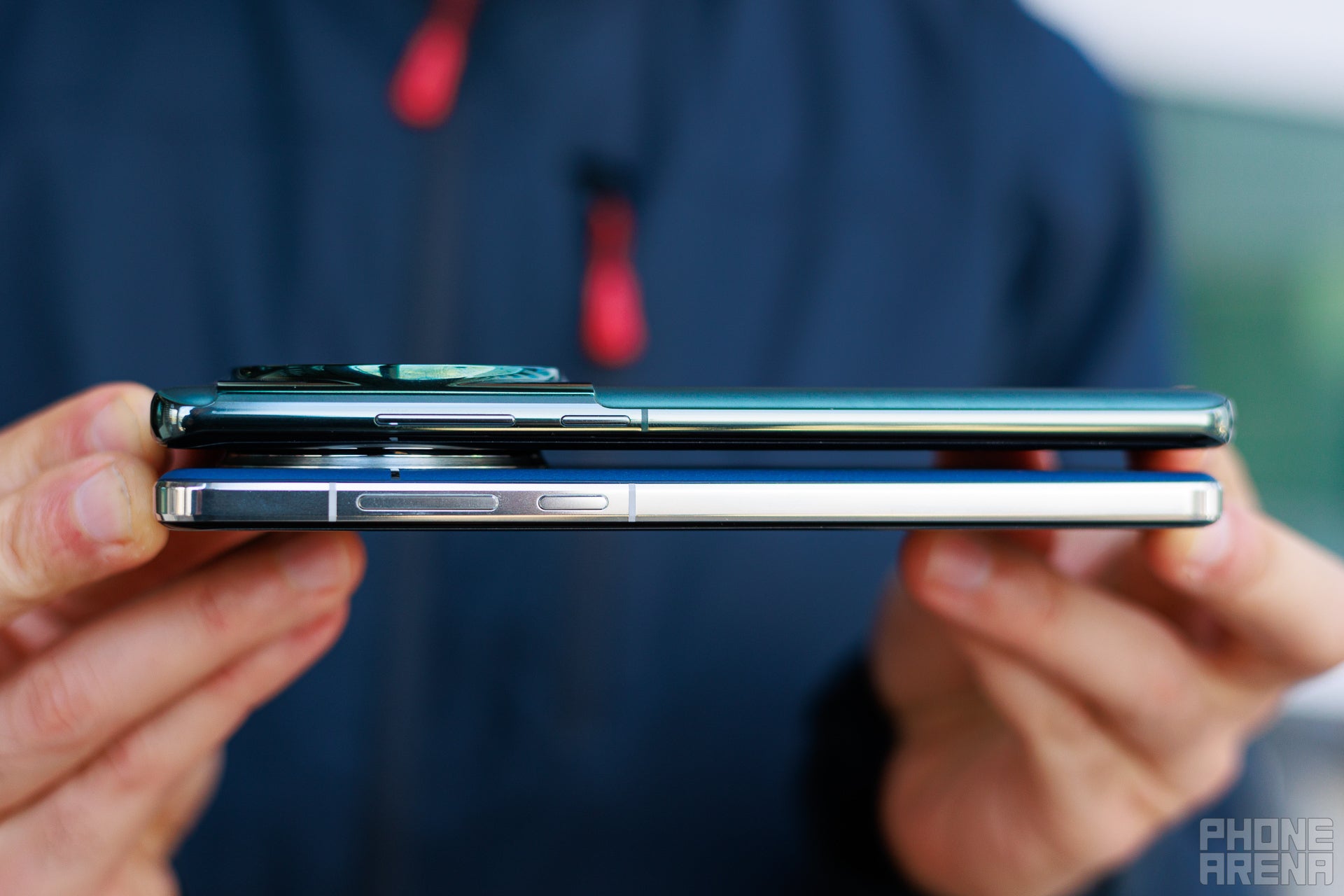
We are happy to see the alert slider (aka the mute switch) on the OnePlus 13. This is a staple of OnePlus phones, and it is also available on all previous phones.
One really cool new addition is IP69 support on the OnePlus 13. This means the phone will not only withstand water submersion, but also water jets and high temperature water. Most other phones only have IP68 water and dust protection, which does not guarantee protection against water jets.
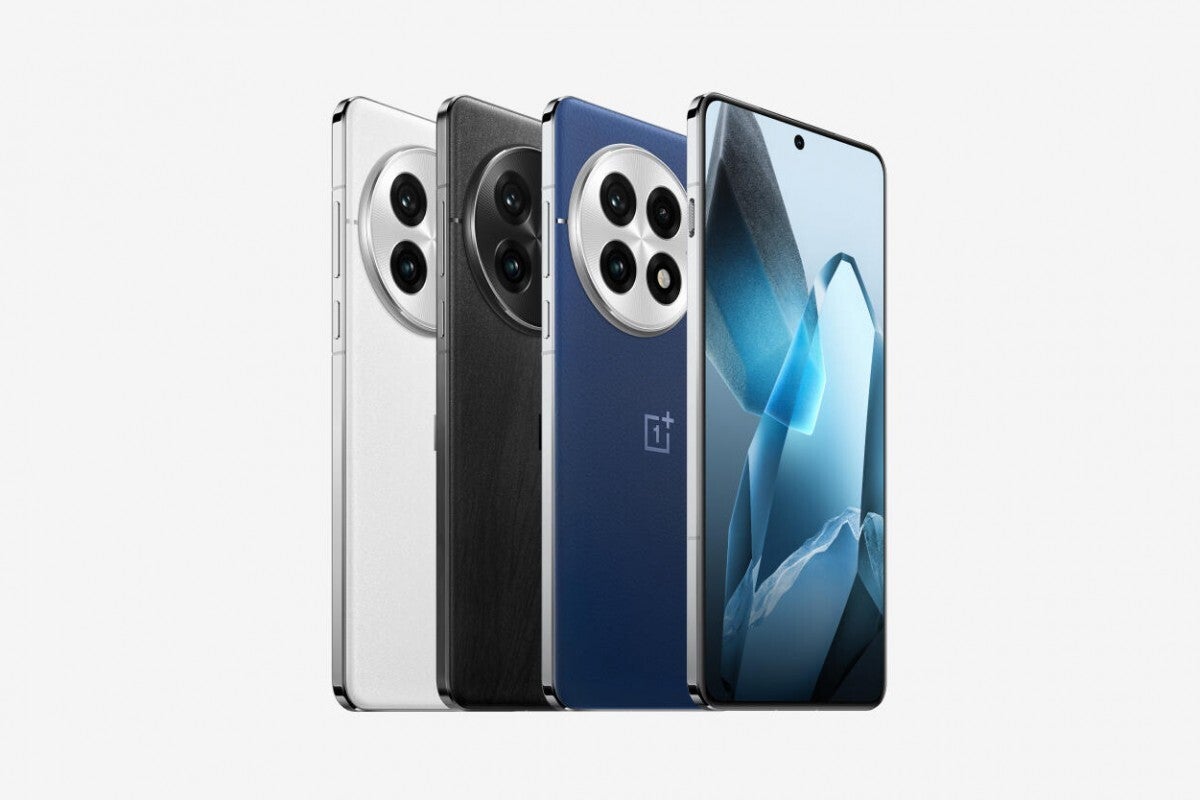
OnePlus 13 color options
You have a choice of three combinations of colors and materials:
- Midnight Ocean (soft microfiber vegan leather)
- Arctic Dawn (smooth white glass, leaving no fingerprints)
- Black Eclipse (glass finish with realistic wood grain texture)
We have the blue one for review and this softer finish is such a nice change from other phones, where you only have the option for a glass back.
Good news is that you also get a rich unboxing experience with the fast charger included in the box (not in all markets though), and the OnePlus 13 also comes with a pre-applied screen protector.
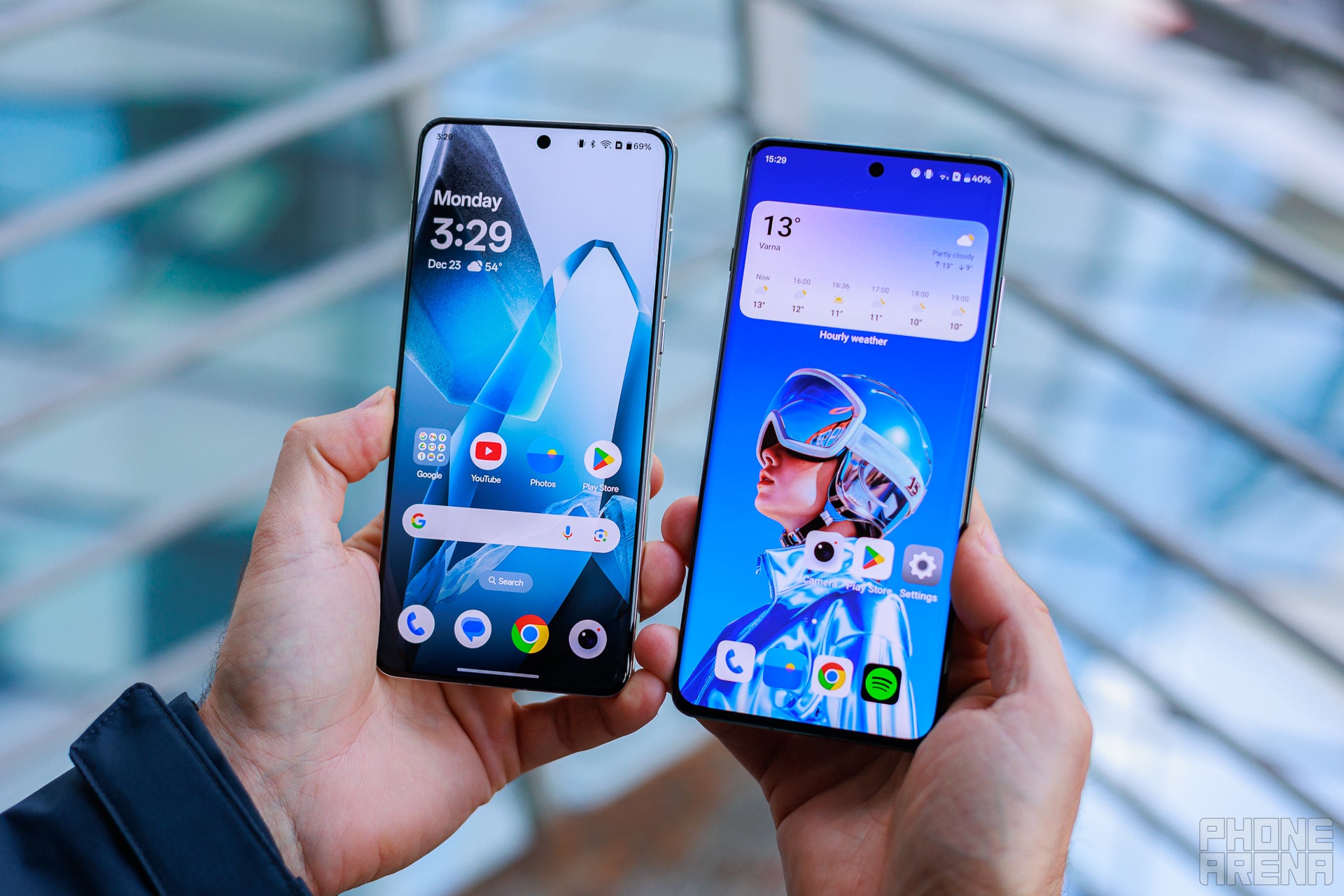
OnePlus is particularly proud of the next generation screen technology used in the OnePlus 13. It uses a 6.8-inch OLED display with a 1440p resolution, which is the same size and resolution as the OnePlus 12, but a newer panel with even better accuracy.
As far as brightness goes, the numbers are roughly the same as last year, but OnePlus says it is using a new technology called RadiantView to improve readability under sunlight. It works by dynamically boosting the brightness of individual pixels based on what is on your screen, a clever approach.
The OnePlus 13 also has 2160Hz high frequency pulse-width modulation (PWM), which means screen flicker is less noticeable and will not strain your eyes, but that is not new, as we already had it on the OnePlus 12.
Performance and Software
Top-level Snapdragon 8 Elite chip on the OnePlus 13
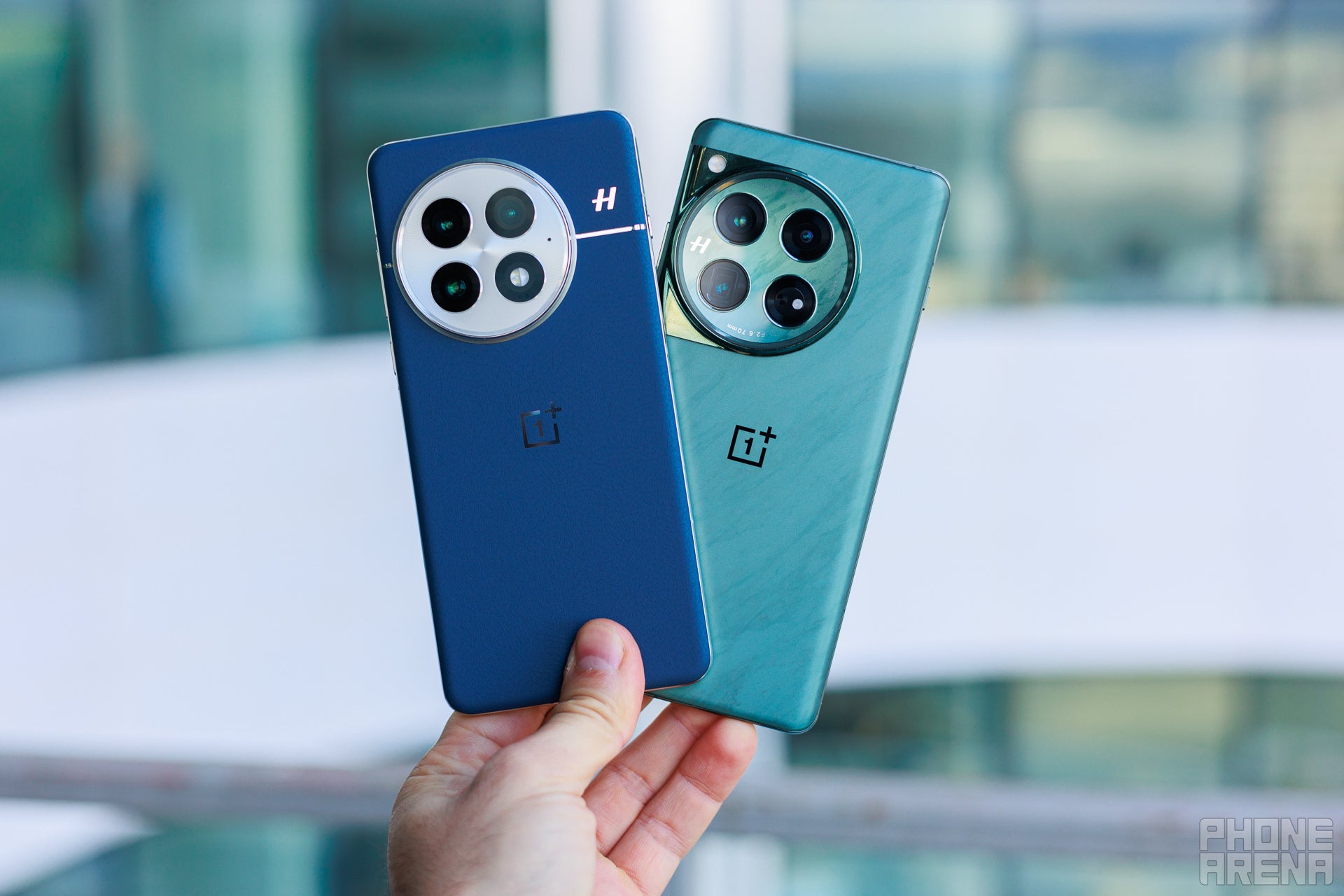
The OnePlus 13 is powered by the latest and greatest Snapdragon 8 Elite chipset, a big upgrade over the Snapdragon 8 Gen 3 in the OnePlus 12.
We want to emphasize this – the Snapdragon 8 Elite is an absolute beast and goes above the usual expectations for a yearly upgrade.
We measured the performance of both phones in benchmarks and the results are telling.
As you can see the OnePlus 13 outperforms its predecessor in both the CPU-focused GeekBench test, as well as in 3D Mark Wildlife and gaming.
You have the same configurations for both phones – a base model with 12GB of RAM and 256GB of storage, and then a version with 16GB of RAM and 512GB of storage. Keep in mind that at launch (at least in the US), OnePlus gives users a free upgrade to the 16/512GB version.
In terms of software, these two are mostly identical. Both the OnePlus 13 and OnePlus 12 run on Oxygen OS 15, which itself is based on Android 15. It is a clean, light-weight and very well-optimized skin.
With this software, you get almost the same AI capabilities on the two phones.
Here is what we mean:
- AI Editor in Photos app (AI Detail Boost, AI Earser, AI Unblur, AI Reflection Eraser) are present on both OnePlus 13 and OnePlus 12
- AI Notes – on both phones
All of those AI tricks go to the cloud and they take an extra beat, but otherwise they work as expected.
The only thing that we found to be exclusive to the OnePlus 13 is the Intelligent Search feature on the home screen, which uses AI and can tap into your calendar to give you personalized AI searches.
Camera
New sensors and a few camera tweaks
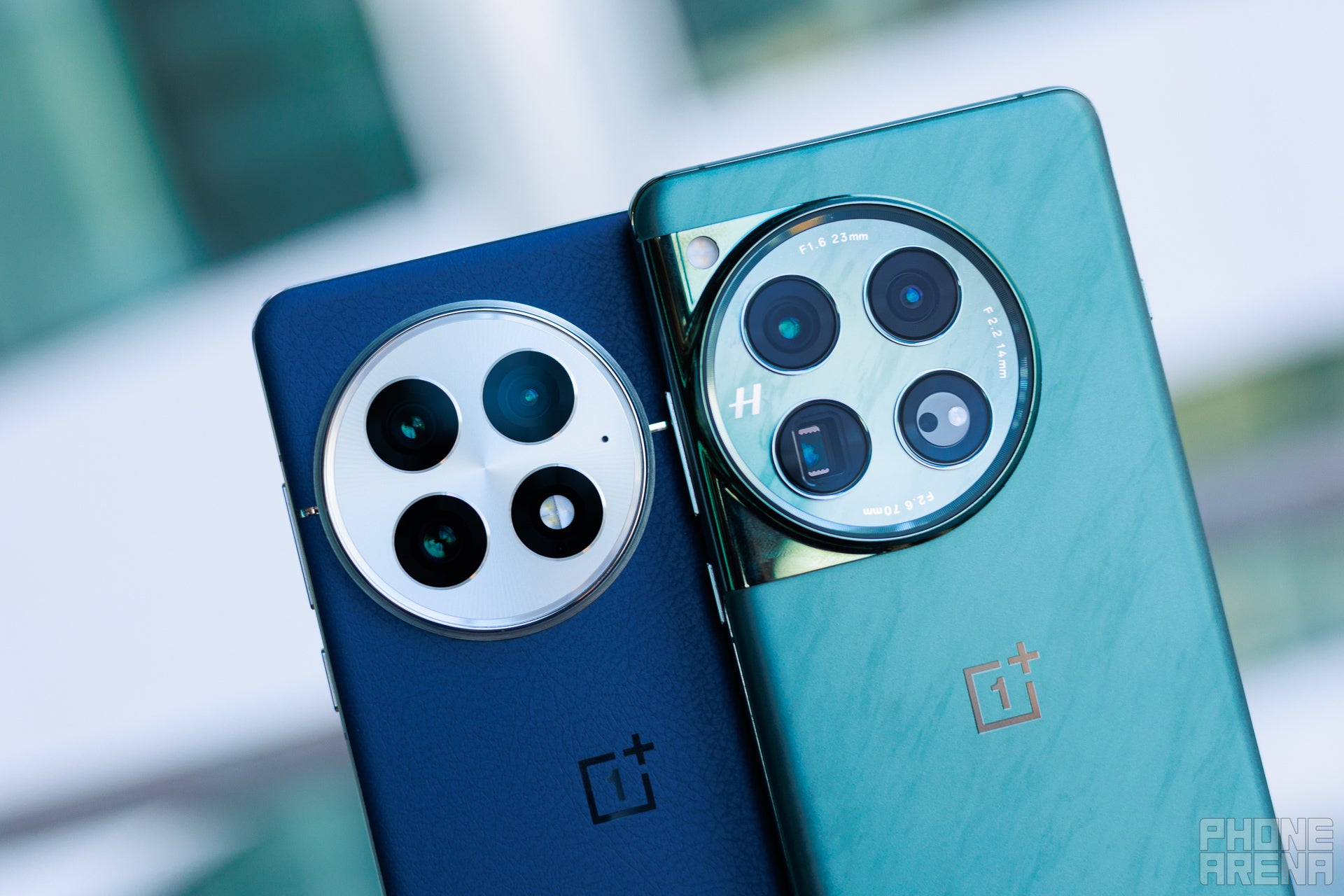
There is no big overhaul of the OnePlus 13 camera system compared to the OnePlus 12, as it uses a similar setup with main + ultra-wide + 3X telephoto camera on the back. Those hoping for a longer zoom lens will be disappointed.
However, the sensors are new, and we have three 50MP sensors on the OnePlus 13 (different sensor sizes on each of them, though).
The OnePlus 13 main camera has a 1/1.4" Sony sensor.
Unlike other mainstream phones, here you get a 3X telephoto camera, rather than a 5X one. However, it's a 50MP sensor, so it can deliver great zoom quality at 6X level as well thanks to the magic of sensor cropping. OnePlus also says that AI kicks in automatically after 10X zoom.
The color science is once again "Hasselblad" inspired (5th generation Hasselblad camera for OnePlus), but more on that later.
The OnePlus 13 scored the same as its predecessor on our PhoneArena Camera Testing protocol.
This is certainly not ideal and when you look closer you can see that the OnePlus 13 scored lower for Photography, but higher for Video quality. This is mostly due to a number of strange decisions OnePlus has made affecting the detail, including to the quality of the important main camera. Zoom quality, however, has improved noticeably, thanks to a number of factors, including the processing of the image.
Let's take a look at some actual sample photos, shall we?
Main Camera
You can immediately see a change in the color science with the OnePlus 13 – colors are more vibrant, saturated, the overall exposure is a bit brighter, images look more cheerful.
On the other hand, detail suffers from artificial oversharpening that we don't like to see and the contrast is also emphasized to the extreme.
At night, this kind of processing results in pictures that have more pop, but look at them a bit longer and they seem artificial and very detached from reality.
This was particularly striking on a few occasions where the OnePlus 13 captured almost grotesque, HDR-y photos that we never expected on a modern camera-centric flagship phone.
Zoom quality is better thanks to processing, but it does occasionally suffer from the same problems with way oversaturated colors and excessive contrast.
Changes in colors are particularly noticeable with the extended field of view of the ultra-wide camera.
Zoom Quality
Zoom quality is better thanks to processing, but it does occasionally suffer from the same problems with way oversaturated colors and excessive contrast.
Ultra-wide Camera
Changes in colors are particularly noticeable with the extended field of view of the ultra-wide camera.
Some of these changes are for the better – colors pop more and gone is the dull yellow/greenish cast from the OnePlus 12, but again, OnePlus has swung way too far in the other direction with saturation and vividness.
Selfies
Both phones have a 0.8X and 1X selfie modes.
Selfies mostly look fine on both phones, but you can see that the color science changes on the OnePlus 13 for the front camera as well.
More Camera Samples
Video Quality

Battery Life and Charging
A massive silicon-anode battery inside
A 6,000 mAh battery on a flagship phone sounds awesome and this is a big upgrade over the 5,000 mAh battery commonly used on other Android flagships like the Galaxy S24 Ultra.
Comparing the OnePlus 13 battery to the OnePlus 12, it's a smaller jump, going up from 5,400 mAh capacity on the OnePlus 12.
What's notable here is the OnePlus 13 is using the new silicon-anode type of battery, where the anode uses a new compound with silicon that provides more capacity at the same physical size. Both this and the older model use two battery cells connected in one pack.
The official estimate for OnePlus 12 battery life is 1.79 days of use, and the OnePlus 13 jumps to 1.96 days of use, so essentially this is a real two-day battery life phone (if we are to believe OnePlus). We had to double check with our in-house tests as well, though.
PhoneArena Battery and Charging Test Results:
And indeed we have a few surprised. While the larger battery helps elevate the OnePlus 13 over its predecessor for web browsing, we see a drop in YouTube battery life. It's hard to explain why this is happening (one expects an improvement with the bigger battery), but we did double-check results to ensure they are correct.
Overall, the total screen time you can expect from the OnePlus 13 is still good at 7 hours and 30 minutes, but our estimate shows the OnePlus 12 from last year actually gets nearly an hour more.
A disclaimer here: battery testing is incredibly complex, and in some use cases the OnePlus 13 could well beat the OnePlus 12, but our compound score shows that YouTube video playback is a weak point this year.
As for charging speeds, nothing has changed. Wired charging caps at 80W speeds (the global version supports 100W), while wireless charging is available at 50W.
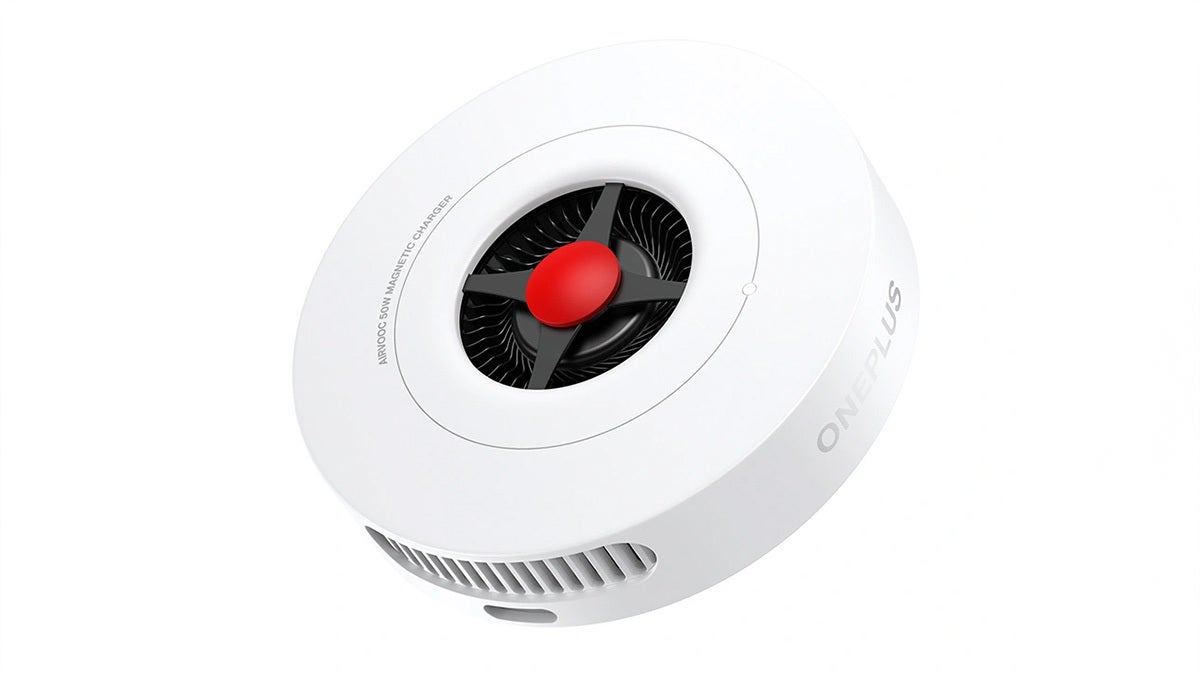
New OnePlus Magnetic Turbine wireless charger
OnePlus also introduced a new wireless charging puck for the OnePlus 13, which looks similar to the Apple MagSafe charger as it has magnets, but it's bigger and comes with a fan. Hey, that's the price to pay if you want double the charging speeds! By the way, that fancy new charger works with iPhones too.
Interestingly, there are no magnets built in the OnePlus 13 itself. You would need to purchase a separate case with magnets (OnePlus has a few official options) in order to use the new wireless charger. These cases simply allow for the proper magnet alignment, while the wireless charging coil is still inside the phone itself. Why did OnePlus go with such a strange design? It's hard to tell, but there are benefits to not having magnets in the phone. It helps keep the device slimmer and cost down.
Audio Quality
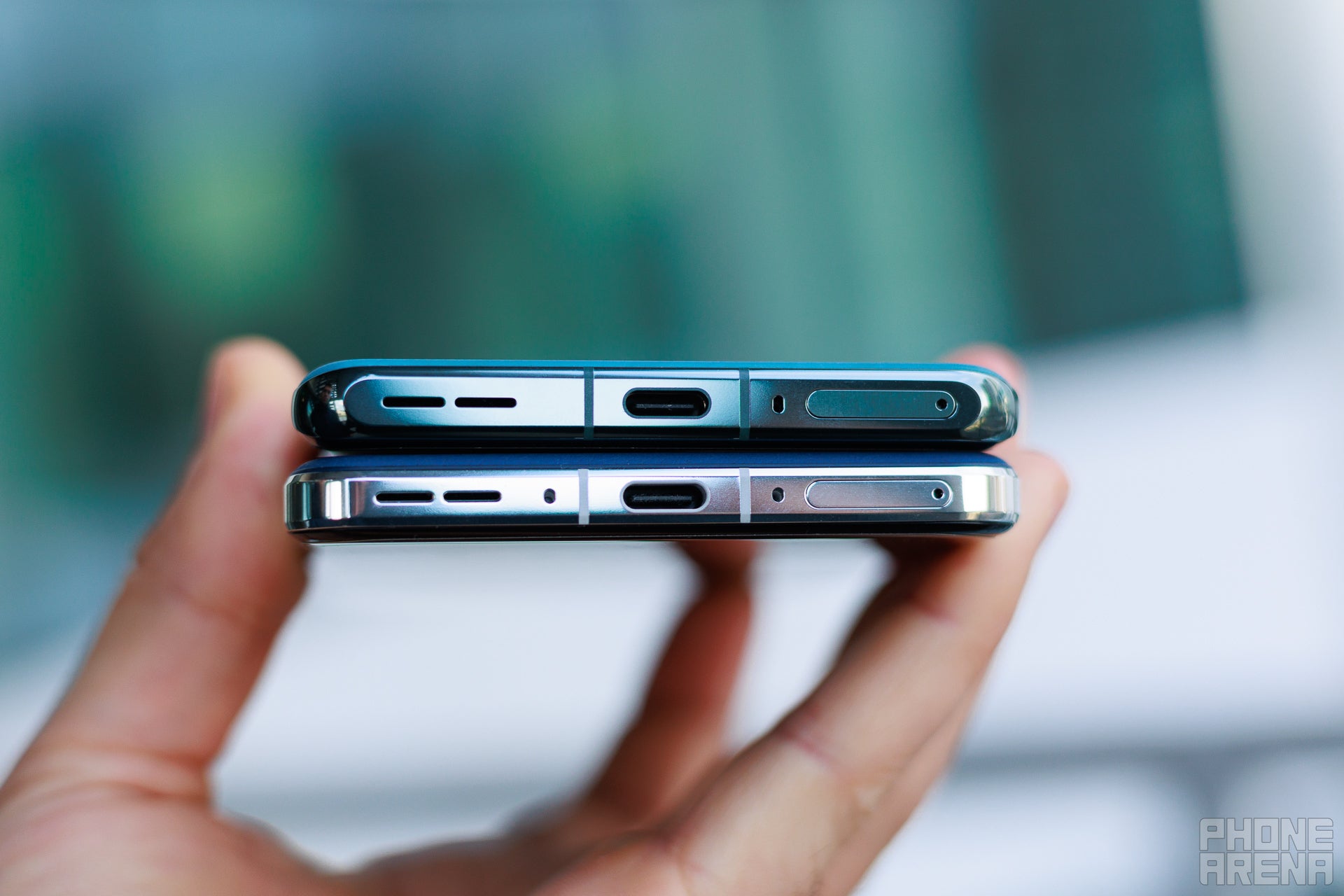
The loudspeakers on the OnePlus 13 sound above average, deliver quite a loud sound without too much distortion, but they fall short of the best-sounding smartphones out there.
The lower frequencies are not quite as rich as we hoped, and that is true for both the OnePlus 13 and OnePlus 12. When listening to the two phones side by side, it's hard to notice much of a difference.
There is no headphone jack on either one, but you did not expect to see one, did you?
Specs Comparison
And below, you can find a breakdown of all the individual specs of the OnePlus 13 and OnePlus 12:
|
|
|
| OnePlus 12 | OnePlus 13 |
| Size | |
|---|---|
| 6.8-inch, 90.88% screen-to-body | 6.8-inch, 90.88% screen-to-body |
| Type | |
| AMOLED, 120Hz, 4500 nits | AMOLED, 120Hz, 4500 nits |
| Resolution | |
| 3168x1440px, 20:9 ratio, 510 PPI | 3168x1440px, 20:9 ratio, 510 PPI |
| Protection | |
| Corning Gorilla Glass Victus 2 | Corning Gorilla Glass Victus 2 |
| System chip | |
|---|---|
| Snapdragon 8 Gen 3 SM8650-AB (4 nm) | Snapdragon 8 Elite SM8750-AB (3 nm) |
| Processor | |
| Octa-core 1x3.3GHz Cortex-X4 5x3.2GHz Cortex-A720 2x2.3GHz Cortex-A520 |
Octa-core 2x4.32GHz Oryon V2 PhoenixL 6x3.53GHz Oryon V2 PhoenixM |
| GPU | |
| Adreno 750 | Adreno 830 |
| Memory | |
| 12GB (LPDDR5X)/256GB (UFS 4.0) 16GB/512GB 16GB/1024GB 24GB/1024GB | 12GB (LPDDR5X)/256GB (UFS 4.0) 12GB/512GB 16GB/512GB 24GB/1024GB |
| Storage expansion | |
| not expandable | |
| OS | |
| Android (14) | Android (15) |
| Type | |
|---|---|
| 5400 mAh, Li - Polymer | 6000 mAh, Si - Carbon |
| Charging | |
| Fast charging Qi wireless charging, Reverse wireless charging | Fast charging Qi wireless charging, Reverse wireless charging |
| Charge speed | |
| Wired: 100.0W Wireless: 50.0W | Wired: 100.0W Wireless: 50.0W |
| Rear | |
|---|---|
| Triple camera | Triple camera |
| Main camera | |
| 50 MP (OIS, PDAF) Aperture size: F1.6 Focal length: 23 mm Sensor size: 1/1.43" Pixel size: 1.12 μm | 50 MP (OIS, PDAF) Aperture size: F1.6 Focal length: 23 mm Sensor size: 1/1.43" Pixel size: 1.12 μm |
| Second camera | |
| 48 MP (Ultra-wide) Aperture size: F2.2 Focal Length: 14 mm Sensor size: 1/2" Pixel size: 0.8 μm |
50 MP (Ultra-wide) Aperture size: F2.0 Focal Length: 15 mm |
| Third camera | |
| 64 MP (Telephoto, Periscope, OIS, PDAF) Optical zoom: 3.0x Aperture size: F2.6 Focal Length: 70 mm Sensor size: 1/2" Pixel size: 0.7 μm |
50 MP (Telephoto, Periscope, OIS, PDAF) Optical zoom: 3.0x Aperture size: F2.6 Focal Length: 73 mm |
| Flash | |
| LED | LED |
| Video recording | |
| 8K UHD (24 fps), 4K UHD (60 fps), 1080p (240 fps) | 8K UHD (30 fps), 4K UHD (60 fps), 1080p (240 fps) |
| Front | |
| 32 MP Video capture: 4K UHD (30 fps) | 32 MP Video capture: 4K UHD (30 fps) |
| Dimensions | |
|---|---|
| 6.47 x 2.98 x 0.36 inches 164.3 x 75.8 x 9.15 mm |
6.41 x 3.01 x 0.33 inches 162.9 x 76.5 x 8.5 mm |
| Weight | |
| 7.76 oz / 220.0 g | 7.41 oz / 210.0 g |
| Materials | |
| Back: Glass Frame: Aluminum | Back: Glass Frame: Aluminum |
| Resistance | |
| Water, Dust; IP65 | Water, Dust; IP69 |
| Biometrics | |
| Ultrasonic in-screen fingerprint | |
| Keys | |
| Right: Volume control, Lock/Unlock key | |
| Colors | |
| Green, Black, White | Black, Blue, White |
See the full
OnePlus 12 vs OnePlus 13 specs comparison
or compare them to other phones using our
Phone Comparison tool
Should you upgrade from the OnePlus 12 to the OnePlus 13?
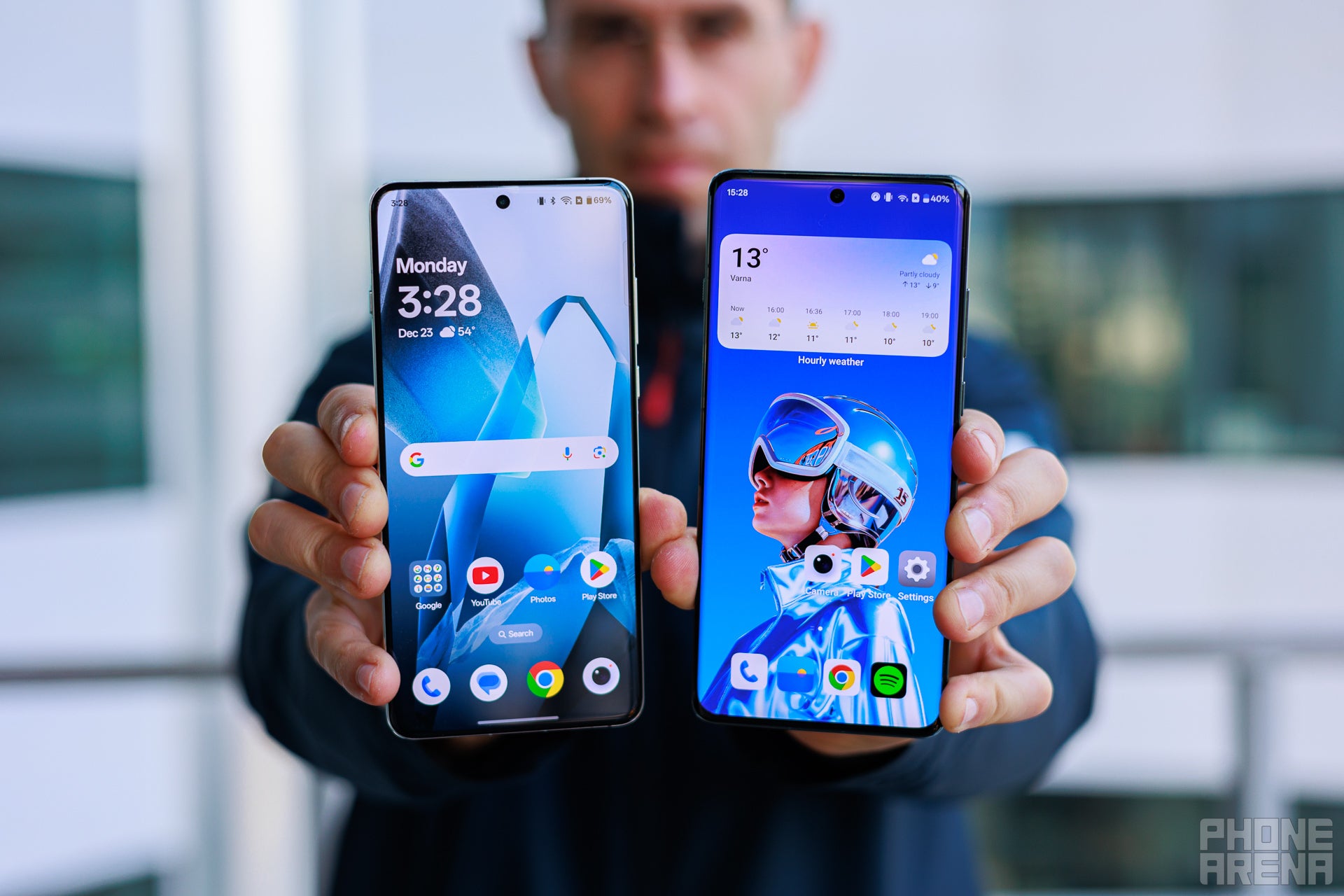
The OnePlus 13 comes with a number of welcome new features, but should OnePlus 12 owners upgrade?
Probably not.
The camera is usually the biggest incentive and unfortunately, this year it is a questionable upgrade, as OnePlus swings from slightly dull colors to photos that often look overprocessed.
There are some big wins too: the massive improvement in performance with the new processor, the still quite affordable price, the welcome design tweaks, and a few smaller ones.
When it comes to AI... well, you get mostly the same features on the OnePlus 13 and OnePlus 12, so you are not missing out.
And how would you rate the OnePlus 13 upgrade? Let us know your favorite new features and your wishes in the comments below.
Follow us on Google News


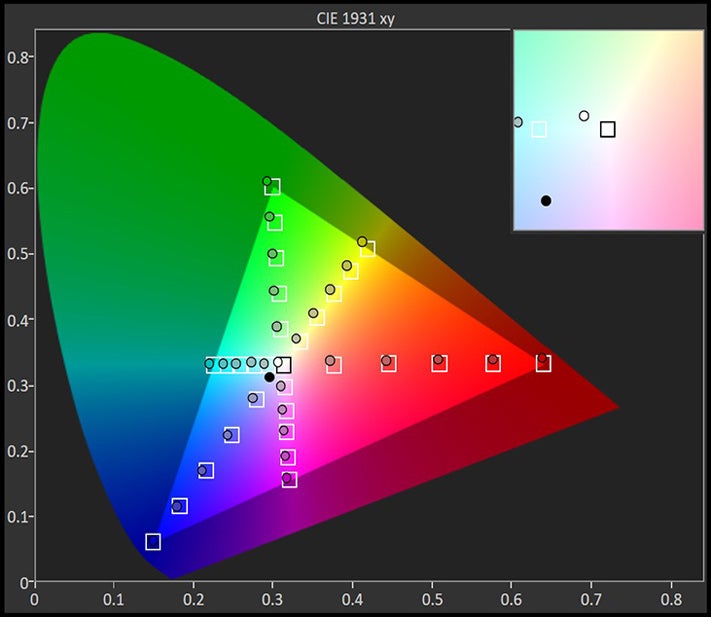
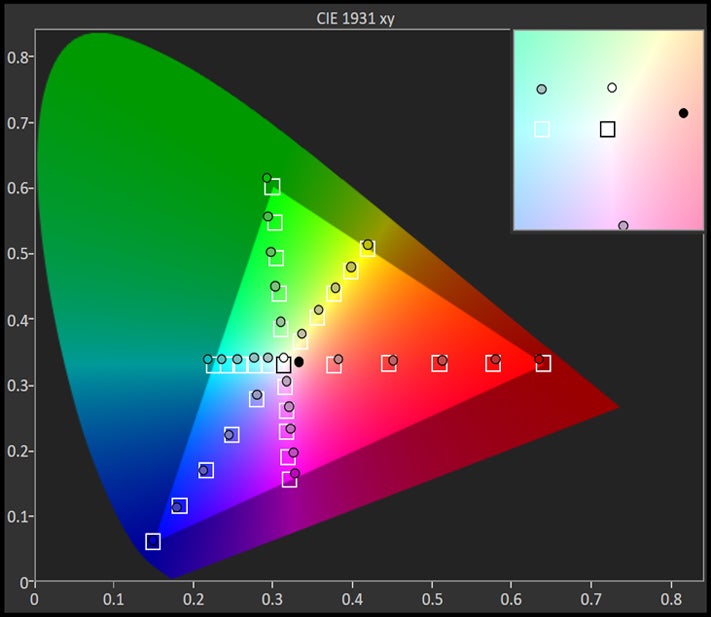

















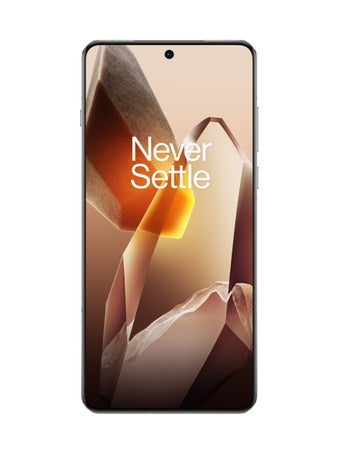




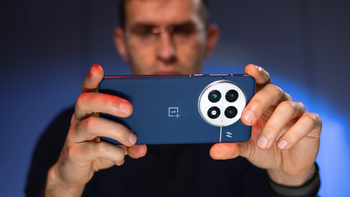

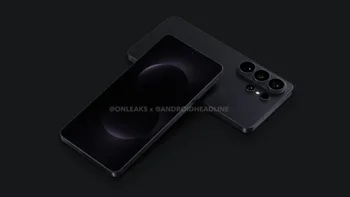
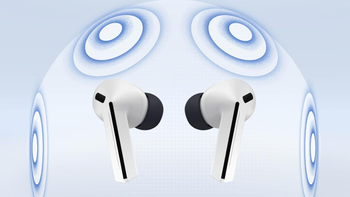





Things that are NOT allowed:
To help keep our community safe and free from spam, we apply temporary limits to newly created accounts: